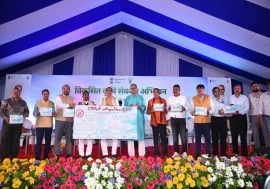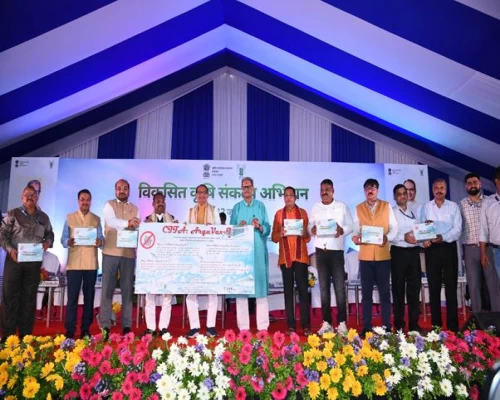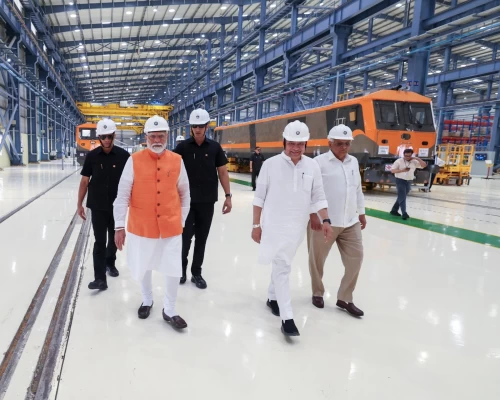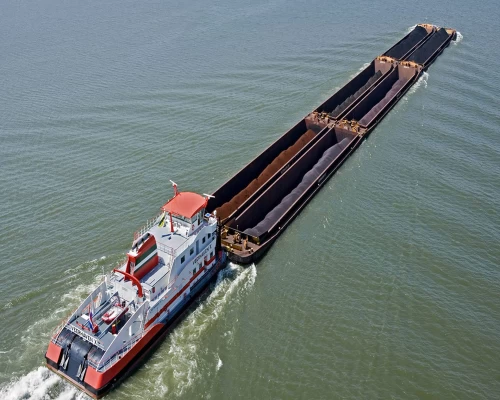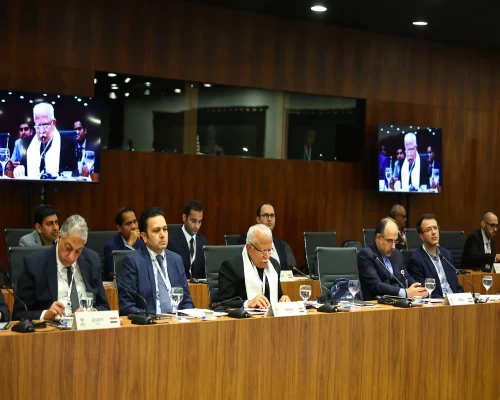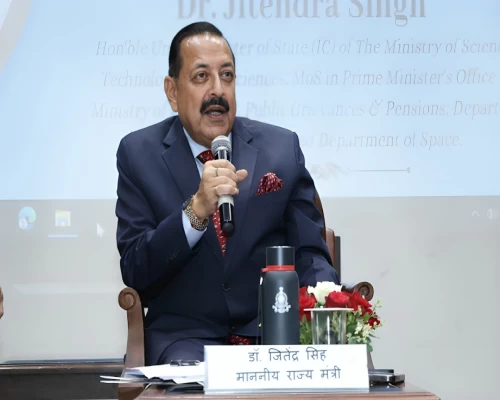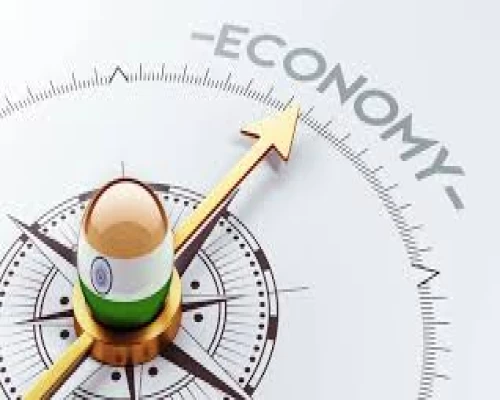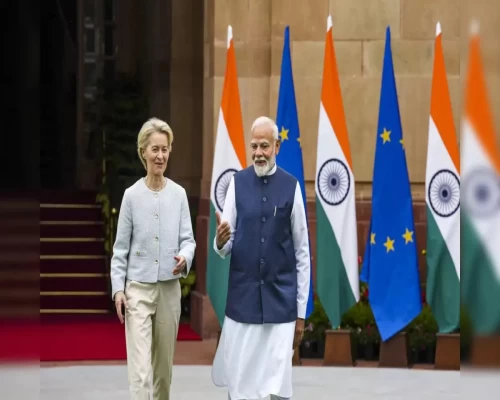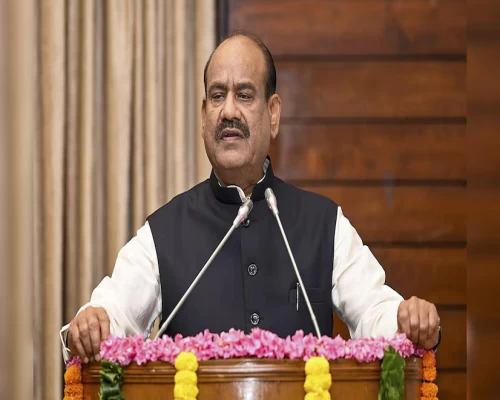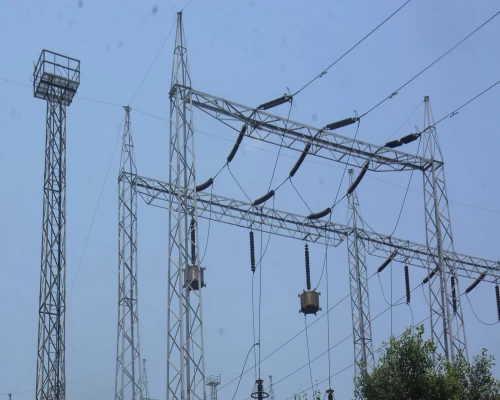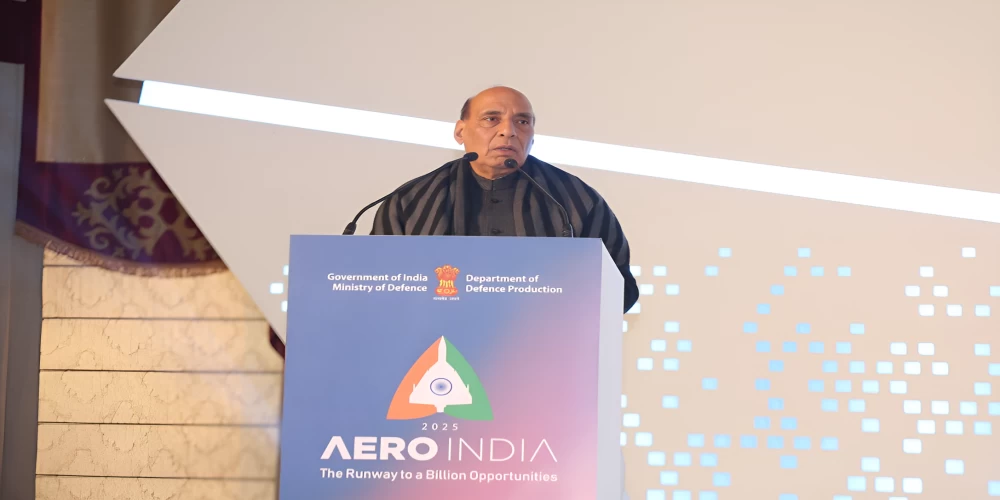
New Delhi: Raksha Mantri Rajnath Singh has invited the global community to join India in the co-development and co-production of advanced systems, emphasising that the current global security scenario requires innovative approaches and stronger partnerships. He was addressing the Defence Ministers’ Conclave, ‘Building Resilience through International Defence and Global Engagement (BRIDGE)’, organised as part of the 15th Aero India in Bengaluru, Karnataka on 11 February 2025. The event saw participation from over 162 delegates representing 81 countries, including 15 Defence Ministers, 11 Deputy Defence Ministers, 15 Permanent Secretaries, and 17 Service Chiefs.
Speaking at the conclave, Rajnath Singh said that the increasing number of conflicts, shifting power dynamics, new methods of weaponisation, the growing role of non-state actors, and the rise of disruptive technologies have made the world order more fragile. He pointed out that the distinction between border security and internal security is becoming blurred, as hybrid warfare has the potential to target critical national infrastructure even in peacetime. He added that cyberspace and outer space are redefining the traditional concept of sovereignty.
He highlighted that disruptive technologies such as artificial intelligence, quantum computing, hypersonic systems, and directed energy weapons are transforming warfare, creating new vulnerabilities. These changes, he said, will have a significant impact on future conflicts, requiring a reassessment of the capabilities needed to address emerging challenges.
The Raksha Mantri emphasised that international peace and stability cannot be maintained from a position of weakness, and the Indian government, under Prime Minister Narendra Modi, is taking comprehensive steps to strengthen the country’s defence capabilities. He said that India has implemented policies to encourage investment in the defence sector, facilitating the production of a wide range of modern land, maritime, and air systems. He described India’s emergence as a global hub for research, development, and innovation in defence as a reflection of its growing capabilities.
He highlighted India’s vibrant defence start-up ecosystem, which has the third-largest number of unicorns globally. He underlined the opportunities for collaboration within the Indian aerospace and defence sectors, supported by a strong research and development base and an entrepreneurial spirit. He noted that India’s skilled workforce enables cost-effective production, making it an attractive partner for co-development and co-production. He reaffirmed India’s commitment to sharing defence equipment, hardware, services, and technology with its partners.
Rajnath Singh outlined India’s vision of peace, security, and development, which is based on inclusivity and collaboration. He said this approach is guided by Prime Minister Narendra Modi’s five ‘S’ principles: Samman (Respect), Samvaad (Dialogue), Sahyog (Cooperation), Shanti (Peace), and Samriddhi (Prosperity). These principles, he said, define India’s international engagements and are particularly relevant in a world increasingly divided by conflicts.
He stressed that India has embraced the vision of Security and Growth for All in the Region (SAGAR) for the Indian Ocean Region, with a focus on maritime security, economic development, and the blue economy. He added that India’s collaborative efforts in tackling non-traditional threats such as piracy, terrorism, illegal and unregulated fishing, and climate-related challenges demonstrate its commitment to global cooperation beyond the Indian Ocean Region. He said that India’s approach to global partnerships is based on equality, trust, mutual respect, and adherence to international law.
Rajnath Singh stated that India does not believe in transactional relationships or imposing solutions on its partners. Instead, its approach is centred on mutual capacity building, ensuring prosperity and security while respecting the sovereignty of partner nations. He emphasised that India seeks to empower its partners by supporting their national priorities rather than dictating terms. He described equitable partnerships as the foundation of defence cooperation, whether through the supply of Indian-made ships and aircraft, sharing expertise, or conducting joint training programmes.
He highlighted India’s growing reputation as a trusted defence exporter, known for its quality, reliability, and ability to tailor solutions to the specific needs of partner nations. He said that India’s defence industry is well-equipped to provide a wide range of solutions, from cutting-edge technology to cost-effective equipment. He added that India is committed to strengthening the defence capabilities of its partners, helping them address their security challenges effectively.
The BRIDGE initiative, he said, represents a commitment to transforming dialogue into concrete outcomes by fostering partnerships that are resilient, adaptable, and future-ready. He noted that challenges such as terrorism, cybercrime, humanitarian crises, and climate-related disasters extend beyond national borders and require a collective response.
During the conclave, the Defence Ministers praised the Department of Defence Production for organising Aero India and providing a platform for world-class manufacturers to showcase the latest innovations and technologies. They appreciated the BRIDGE initiative, seeing it as a step towards building peace and prosperity for all. Many delegates expressed their willingness to work with India for their defence and security needs, reaffirming their commitment to strengthening ties with New Delhi.
Several countries conveyed their interest in technology transfer and co-development, recognising India as a key player in building a resilient global supply chain. They acknowledged India’s role in peacekeeping and its contributions to upgrading the capabilities of partner nations in various sectors, including defence, healthcare, and education.
Shared security concerns were also discussed during the deliberations, with the Ministers unanimously agreeing that armed conflicts should be avoided as they are detrimental to people and development. They discussed issues such as drug trafficking, illegal fishing, terrorism, and cybercrime, pledging to work together to tackle these challenges. The participating nations also agreed to advance the idea of ‘One Earth, One Family, One Future’, which was the theme of India’s G20 Presidency.
Delivering the closing remarks, Raksha Rajya Mantri Sanjay Seth thanked the attending dignitaries for their participation. He expressed appreciation for the Defence Ministers, senior officials, and distinguished guests for their contributions to the conclave. He highlighted the collaborative spirit of the BRIDGE initiative and expressed optimism about strengthening existing partnerships while exploring new opportunities for mutual cooperation and prosperity.
The event began with a welcome address by Secretary (Defence Production) Sanjeev Kumar. The conclave was attended by Chief of Defence Staff General Anil Chauhan, Chief of the Naval Staff Admiral Dinesh K Tripathi, Chief of the Army Staff General Upendra Dwivedi, Chief of the Air Staff Air Chief Marshal AP Singh, Defence Secretary Rajesh Kumar Singh, and Secretary of the Department of Defence and Chairman of DRDO Samir V Kamat.
The discussions covered key areas such as defence capacity building through investment, joint ventures, and co-production; collaboration in research and development; training and advancements in artificial intelligence and space technology; maritime security cooperation; and strategic partnerships.
BI Bureau


